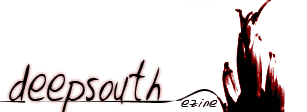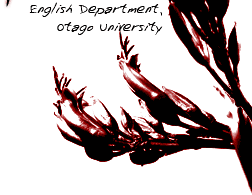The Faces of Rulers in Recent African Poetry
Exasperated with Africa’s political perturbations, African poets harass African leaders without restraint. Since the politician and his military surrogates are culprits they have become natural targets of poetic scorn. The ledgers of the poets of the moment capture issues like social and political corruption, mismanagement and maladministration, deprivations and oppression suffered by the low-downs, the pernicious effect of government on the masses, the pestilential temper of despotic government in Africa and the relevance of the poet and his poetic art in the balancing of the lopsided continental calculus. Since the issues that continue to occupy a looming space in the artistic canvas of these poets have been briefly listed above, it is pertinent to assess the debility of the masses and the moral depravity of rulers as depicted in recent African poetry. This exploration would no doubt harmonize contemporary African poetry, at the same time explicating the planking of its ideological structure. When assessing contemporary Africa Poetry, it appears there is a dramatic break because of the sudden change of thematic concerns by the 1970s. It is not a break as it were, the poetic curve only shifted. For most African states, independence was a still-birth or better still, Africans savoured the moment with obvious relish but it was a brief frolicking moment. The writers were alerted to new dangers; exploitation had refused to vanish with the attainment of political independence, the exploiters had simply changed. The elected Africans became 'whiter than white' and the ruled found themselves increasingly alienated as disenchantment set in. The targets of the poets' protest changed from the colonial invader to the inheritors of their powers. Hence, Eldred Jones remarks that it is possible to easily "distinguish in the literatures of most countries pre-independence from post-independence literature but only as trends rather than a sudden dramatic break" (1). Niyi Osundare, a foremost representative of this generation of poets, writes that: “Poets of the ‘new generation’ articulate a clear consciousness of the place of the poetry in a tone and with a vehemence hardly experienced in the earlier generation” (28).
The present state of African poetry is informed by the dire economic predicament of most African countries, which situates the teeming masses of Africans around the abject corners of society. Hence, Ojaide remarks that it has become “fashionable among poets from the mid-1970s more than before to align with the economically exploited, underprivileged masses of the society” (24). Oyeniyi Okunoye amplifies the above assertion when he remarks that the “poets identify with the aspirations of the masses that constitute the powerless majority” (21). Whatever the thematic thrust, their poetry functions as the ultimate barometer against which the economic fortune of Africa is to be measured. These poets made their medium of expression public-oriented in order to expose the corporate greed of the rulers and discourage the defenseless public from the incessant juicy sermons of dreams and hope which easily penetrate deep into their passive waiting ears. This transmogrification at the level of language is eloquently captured by Biodun Jeyifo:
For while the older poets generally deployed a diction and a metaphoric, highly allusive universe calculated to exclude all but a small coteric (sic) of specialists, the new poets have taken the language of poetry, the diction of figurative expression, to the market-place, to the popular daily press even (316).
This innovative dynamics at the level of language finds expression in Niyi Osundare’s premiere collection, which Izevbaye describes as “programmatic in organization” (321). In the first poem, which functions as a sort of manifesto, Osundare defines poetry as, “man meaning to man” (Songs of the Market Place: 3). Ojaide’s “Naked Words,” carries the same guileless tone:
We must speak the truth About ourselves to ourselves Without interpreters, middle Let those who come to us Listen with more than their ears. This is a family ceremony To which the whole world has Come. We will be very true to ourselves (Eagle’s Vision: 11)
Though Odia Ofeimun is not as prolific as Ojaide and Osundare in productivity, his work occupies an important position in Nigeria’s poetry of earnest socio-political commitment. In “The Prologue” one notices a voice addressing an audience, not with a staid accent but with clarity of vision and intention:
I have come down To feel for ears and hearts and hands To rise with me When I say the words Of my mouth (The Poet Lied: 1)
These poets are aware of the fact that if poetry must not only be utilitarian but efficacious in the unwinding of the African masses from their tourniquet of political hoodwinking, their medium of expression must be carried to the ugly corners of the streets, the gutters - the basements of society.
page 1 2 3 4 5 6

